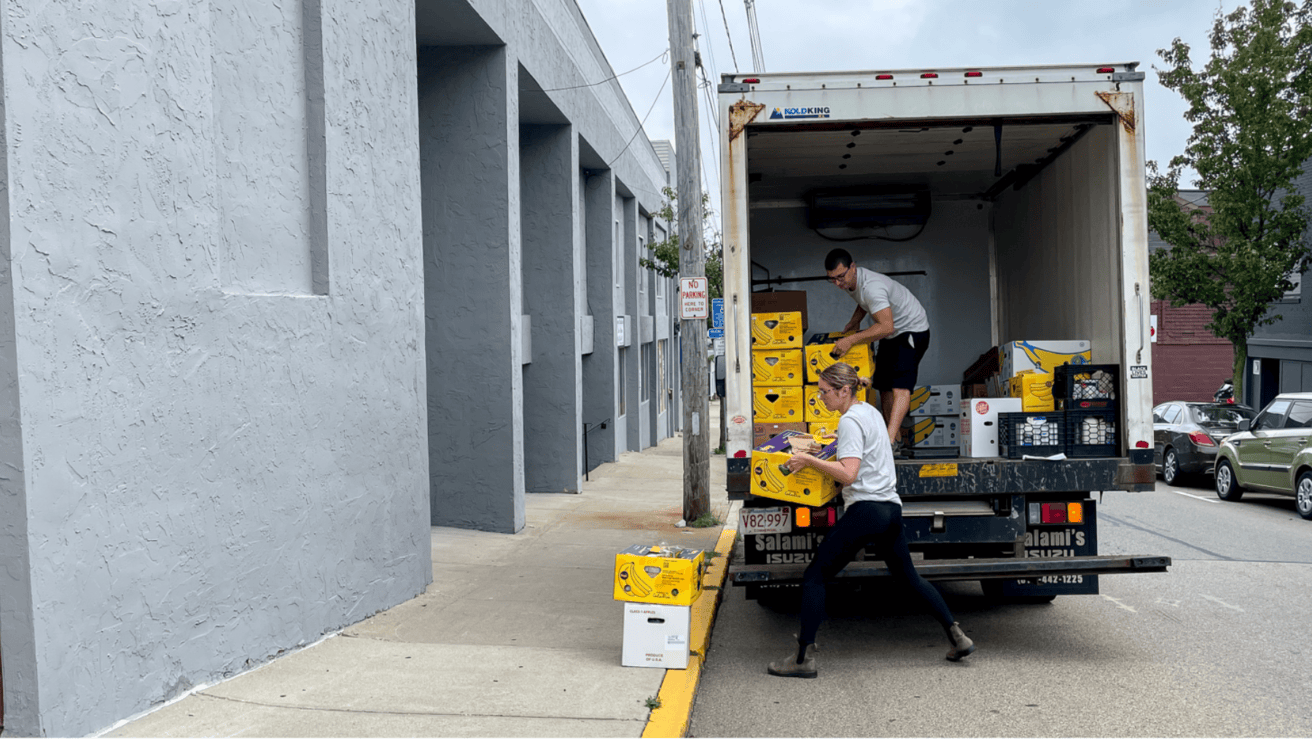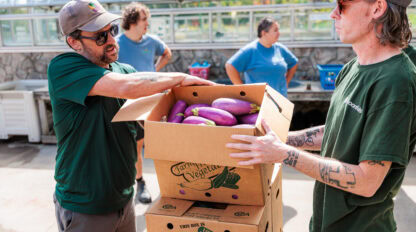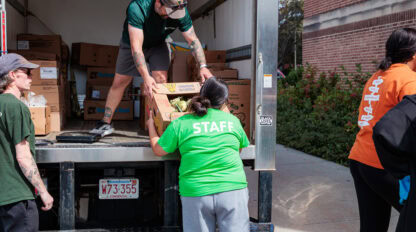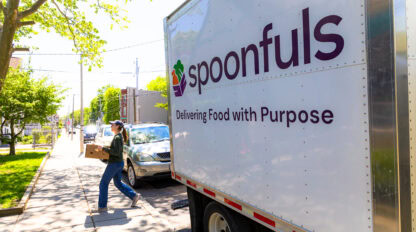Food insecurity rivals peak-pandemic levels

While Covid-19 may no longer be considered a public health emergency, not everyone has recovered from the pandemic according to anti-hunger advocates and service providers. “Far from it,” said Sean Ahern, Senior Director of Operations at Spoonfuls. He points to just one of the regions where Spoonfuls operates – in MetroWest – but says there’s a high demand for food across the Commonwealth.
“In MetroWest alone, we’ve distributed the equivalent of 320,000 meals’ worth of food so far this year alone – and we’re not even serving every pantry or meal program that could use more food for the many more people who are coming to them for support,” said Sean.
Pre-pandemic, Hopkinton-based multi-service program, Project Just Because, which receives food deliveries from Spoonfuls, served 40-50 families per month through its pantry program; today, it’s serving over 3,000. Said Project Just Because Founder and President, Cherylann Lambert Walsh, for those struggling to make ends meet in 2019, the pandemic tipped the scales, plunging some into food insecurity for the first time and worsening circumstances for others.
“People lost their livelihoods and their incomes and had to make choices between their rent, utility bills, medical bills, and food – sometimes for the first time in their lives. And while some of the people we see at the pantry are back to work now, their incomes aren’t keeping pace with the increased cost of everything. The demand here is as great, and sometimes greater, than it was at peak pandemic. Factor in people’s dietary and cultural needs, and things like shifts in population and demographics, like meeting the needs of migrant families new to the area, and we have a lot of work to do,” said Cherylann.
Cherylann’s assessment isn’t anecdotal. Data from statewide hunger organization Project Bread indicates that rates of food insecurity have topped 15% since January 2022 and have hovered between 18-20% since March 2023 – at times topping the pandemic peak of 19.4% of Massachusetts’ households facing food insecurity. Pre-pandemic, rates of household food insecurity landed just over 8%. And while MetroWest communities have comparatively high average per capita household income when compared to others across Massachusetts, cost of living is high, too.
Anti-hunger advocates cite the end of pandemic-era relief programs like Federal Extra Covid SNAP and child tax credits as putting additional pressure on low-income families.
Spoonfuls’ Community Relations Manager, Liz Miller, said community collaboration and advocacy are key to making long term progress in the fight against hunger. “While we’re working together with our partners to ensure that good food doesn’t go to waste, and while we’re working to meet this critical need for food for today, we’re also coming to the table with our Community Advisory Board and coalition partners to grow awareness and support for strategies that improve food access. Growing support and building infrastructure for increased food recovery is an important way we do that.” But, she said, “It’s not about just any food. It’s about, ‘Would you eat this? Would you feed this to your family?’”
With a focus on fresh food, over 65% of what Spoonfuls recovers falls into the categories of produce, meat, and dairy, which Cherylann described as some of the most sought-after foods Project Just Because distributes. “Just because someone can’t afford the food they need for their health doesn’t mean they don’t still need it,” said Cherylann. “We’re working together with Spoonfuls and so many other organizations in MetroWest, because when our neighbors are healthier, when they have the supports they need, our whole community is better for it.”
Want to support Spoonfuls and other organizations tackling food insecurity in your community? See here and reach out directly to the food assistance organizations near you!


